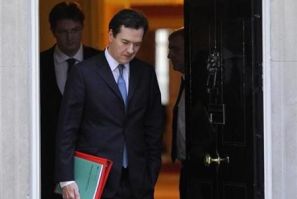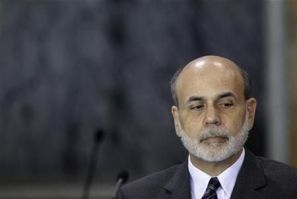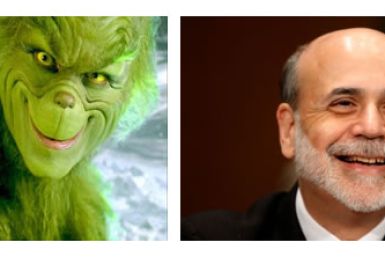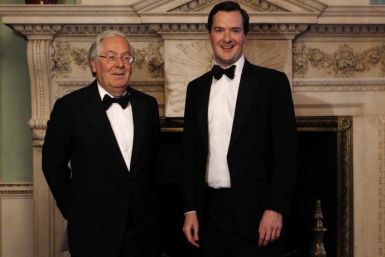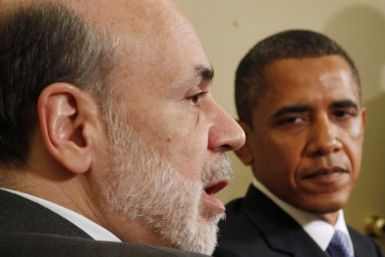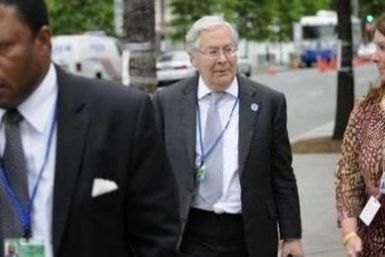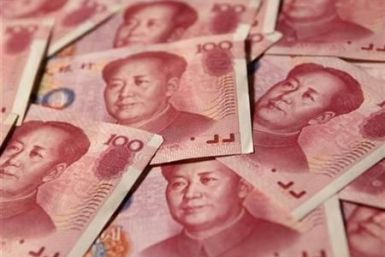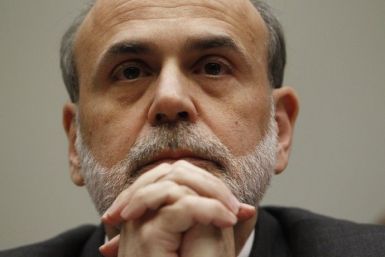Ben Bernanke and his friends on the Federal Reserve have a PR machine to help sell their lies. Let's assess whether Ben and his Federal Reserve have helped or hurt the average American.
The CBI, the British business organization, reduced its forecast for UK economic growth in the first quarter of 2011 to 0.2 percent from 0.3 percent; although it noted that the recovery is expected to be “maintained.”
President Obama's tax cut plan, by lowering unemployment and boosting economic growth, may ease the Federal Reserve's pressure to buy Treasuries via its controversial program of quantitative easing.
Brazil’s unemployment rate fell to a record low in November as the country is set to witness the fastest growth in more than two decades.
China will be able to keep a grip on inflation next year, but will have a harder time in coping with hot money inflows fanned by loose polices in the West, chief banking regulator Liu Mingkang said on Friday.
Wholesale-market Gold Investment bullion-bar prices slipped back to an overnight low beneath $1380 per ounce Thursday lunchtime in London, trading 0.5% down for the week as world equities crept higher and the US Dollar eased back on the forex market.
The Asia-Pacific region will continue to be the fastest-growing region of the world in 2011, according to a forecast by IHS Global Insight. However, the report says the region faces significant risks in the backdrop of the fragile state of some of the largest economies in the world, the raging sovereign debt crisis in the European Union and 'deep-seated structural problems facing Japan.
Euro area annual inflation was 1.9 percent in November, unchanged compared with the last month and within the European Central Bank's target, the European Union's statistics office Eurostat said on Thursday. On a monthly basis, inflation rose 0.1 percent in November.
British retail sales rose in November for a second consecutive month as consumer spending picked up ahead of a hike in value added tax (VAT) next year.
British citizens expect the inflation rate to continue to rise in 2011, according to a survey released by the Bank of England (BoE) on Thursday.
China has been on a commodity price-control overdrive in the past few months in a bid to tame inflation, allay fears of shortages and crack down on hoarding and price-gouging. However, the Chinese commodity boom may not last forever and the prices could likely fall, an analyst has said.
U.S. industrial production rose at its fastest pace in four months in November, implying a self-sustaining recovery is now entrenched, but a mild gain in consumer prices indicated still abundant slack in the economy.
Inflation in the U.S. continued to remain weak during November, in line with analysts' expectations, according to a report by the U.S. Labor Department.
Roubini Global Economics (RGE) has predicted that global economy's growth next year will be marginally weaker than this year, with eurozone holding the biggest risk to global growth, and that the U.S. will not emerge any time soon from the worst unemployment crisis it has faced in decades.
The percentage of Chinese who are satisfied with current price levels sharply dropped to the lowest level in 11 years despite the government efforts to contain rising prices, the People's Bank of China (PBoC) said.
Increasing domestic oil production could reduce unemployment, create jobs, and help jump-start the U.S. economic recovery, said Marc Weidenmier of the American Enterprise Institute.
Investors looking into 2011 should expect strong corporate profits to lift share prices even as the global economy's growth rate slows, Bank of America Merrill Lynch said on Tuesday.
Full-Text: FOMC Policy Statement from Dec. 14, 2010
After some seemingly hawkish moves in the past few weeks, Chinese policy makers adopted a dovish tone on Tuesday by easing the consumer inflation target to 4 percent for 2011.
The FT reported that market-making brokerage and bank J.P.Morgan has materially reduced its bets on lower silver prices, citing a person familiar with the matter.
The British pound strengthened on Tuesday on a higher-than-expected inflation reading for November, with the sentiment also supported by a view that the US Federal Reserve may expand its bond buyback program at its monetary policy later in the day, supplying more dollars into the system.
A survey conducted by Association for Financial Professionals showed the executives do not believe that additional fiscal stimulus is necessary or desirable at this stage.



